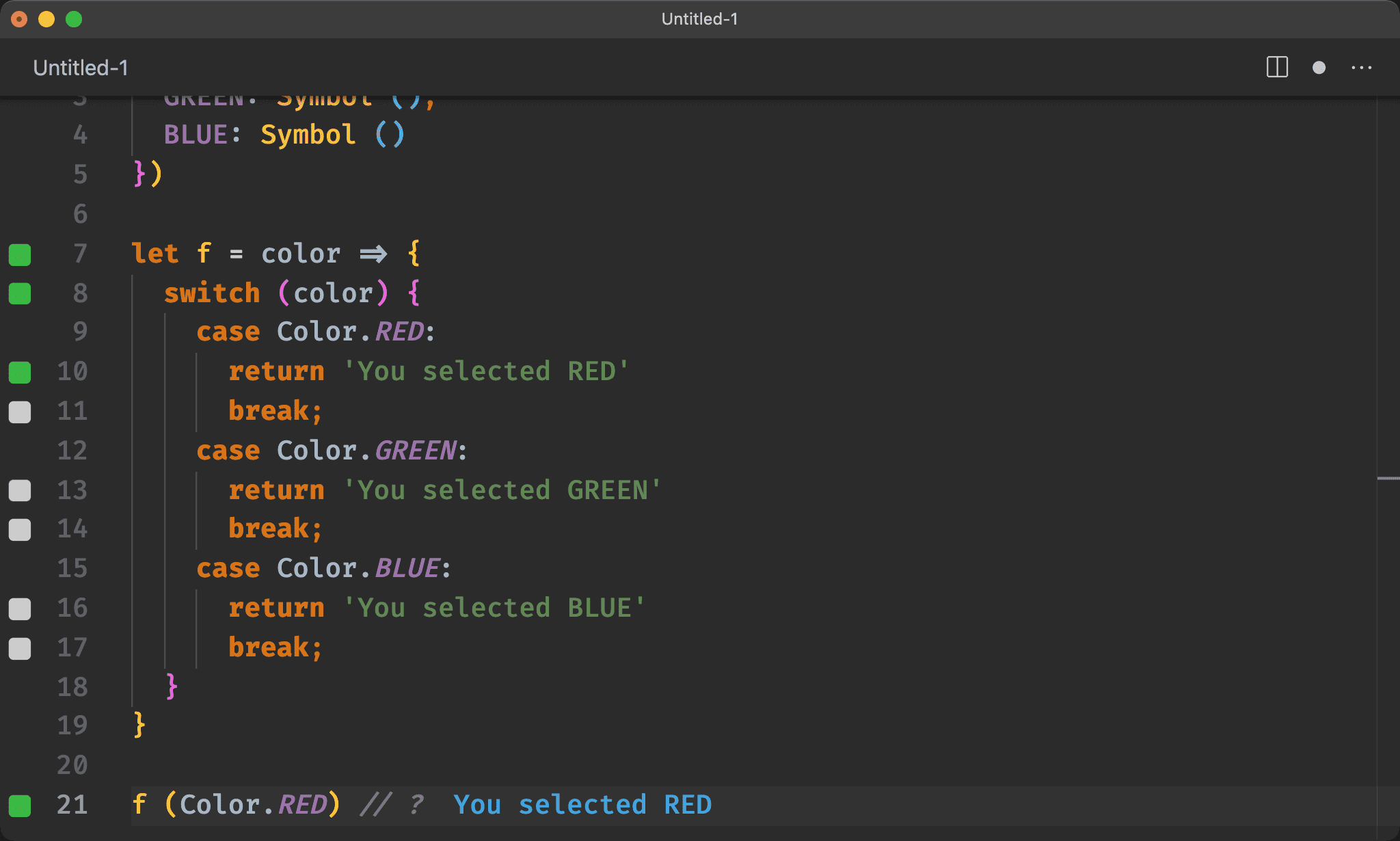If we only allow limited values for arguments, using Enums is a good choice. Unfortunately, we don’t have native Enums in JavaScript, but we can use Object and Symbol to simulate it.
Version
ECMAScript 2015
Enums
let Color = Object.freeze ({
RED: Symbol (),
GREEN: Symbol (),
BLUE: Symbol ()
})
let f = color => {
switch (color) {
case Color.RED:
return 'You selected RED'
break;
case Color.GREEN:
return 'You selected GREEN'
break;
case Color.BLUE:
return 'You selected BLUE'
break;
}
}
f (Color.RED) // ?
Line 1
let Color = Object.freeze ({
RED: Symbol (),
GREEN: Symbol (),
BLUE: Symbol ()
})
- Object is similar to Enums, but Object is mutable, and we have to maintain value to be unique
- Use
Object.freezeto make Object immutable - Use
Symbolto generate unique value
Line 21
f (Color.RED) // ?
It only allows RED、GREEN and BLUE as an argument to pass to f; it’s a good chance to pass Enum to f.
Line 7
let f = color => {
switch (color) {
case Color.RED:
return 'You selected RED'
break;
case Color.GREEN:
return 'You selected GREEN'
break;
case Color.BLUE:
return 'You selected BLUE'
break;
}
}
We can use Enum to distinguish each value we pass.

Conclusion
- Symbol in ES6 facilitates Object to simulate Enums, we don’t have to maintain the unique value of value in Object